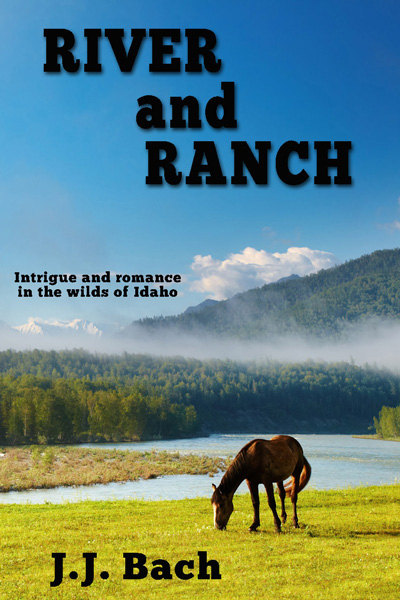Writing blogs abound. Not just author / writer / indie publishers, but people that consult on the art of writing. People that take and make money polishing and honing the written words of others. Many of them advise, and I always imagine them looking over the tops of their bifocals, to "write for your genre". This makes sense, I also think it should be half way obvious though as well. At some point in the writing life cycle I think everyone comes up with the curiosity of "who is going to read my book?". For some, including me at the moment, recognizing your target audience is important, but that is a goal not always easy to meet.
For example, one of the main MCs in River and Ranch, a book I will soon be publishing, lives in Idaho, on a ranch. So I kind of lean towards calling it a western. But most of the western genre today seems to be historical in nature, the MCs are men, and the women are large breasted and waiting around for Mr. Handsome. River and Ranch takes place in the present day. It is a woman who lives on the ranch. She pulls her weight, is a nuclear geophysicist, and somehow makes it through the book without a description of her feminine attributes. She's also independent, although I have to admit she is willing to talk to (and maybe a bit more) the other MC. Can I find a hint of modern Western? as a genre? Not so far.
The other MC is a river guide on the Salmon River, also in Idaho. Not much land-based action, and no horses, except when he meets the other MC and sparks fly. Most of this MCs action takes place on the river as a guide. It is outdoors, in the west. This still kind of wants to be a modern Western, but I hit the same problem, it is "not exactly" a western. Of course the two MCs meet and sparks fly, so this could actually be a romance, and it is, the two characters do fall in love (and much more as well hint hint). So romance does fit. And don't take the prior statement the wrong way, River and Ranch is family friendly. I've discovered there is a "sweet" label in the genre world, that is commonly understood to mean no sex and nothing graphic. River and Ranch fits that. There is adventure throughout the book as the guide is down the river in much of the book. The rancher is also up in the mountains dealing with cattle on the way to their high meadows. Stuff happens in an active adventurous way.
There are two daughters involved, and some of the story is seen through their eyes. So I could push and call River and Ranch young adult. This would fit some of it. Finally there are a couple bad guys acting separately as antagonists to both rancher and river guide. So there are elements of suspense and thrills found throughout.
In the end I am writing the book that I would like to read, as some of those advisors on occasion advise to do. I'm doing it. I also confess to being a bit burnt out on the many genre "traditions". Suspense, thriller, and adventure tends to move at a very fast pace. No time to sleep, no time to eat, no time to engage in surroundings. A fast pace, tight plot, centered on catching the bad guy, etc. They are formulaic. I love the many formulas, but I am also looking for a good read that is beyond the usual suspects when it comes to formulaic genre traditions. I want to read about food, I want to read about the surroundings. I want to read about sleeping on a beach on the Salmon River, one of the most remote spots in the USA and watching the Milky Way and shooting stars (I guess that could be construed as a spoiler, sorry). I want a strong female lead, who can shoot guns (except she corrects everyone who calls them that, they're rifles) and can saddle her own horse and grew up barrel racing. I want to have grandparents involved in the story. You never read about grandparents.
None of which makes fitting this assemblage of places and faces into a narrow orderly genre any easier.
Stay tuned for the ongoing adventures of Genre Boy as he struggles to find his fit in the cold world of fiction.
Jeff Bach
 Does Landscape reach out and grab with an emotional connect? Does a horse in a meadow in the mountains convey an image that leads to reading and buying? It lacks people. Is this a showstopper? Does this not convey what the book is about? It is about a ranch and horses and riding in the meadows. But it is about people too. So for now it's a working cover until I can figure out something better.
Does Landscape reach out and grab with an emotional connect? Does a horse in a meadow in the mountains convey an image that leads to reading and buying? It lacks people. Is this a showstopper? Does this not convey what the book is about? It is about a ranch and horses and riding in the meadows. But it is about people too. So for now it's a working cover until I can figure out something better.